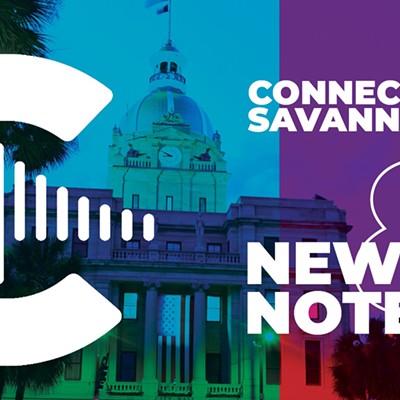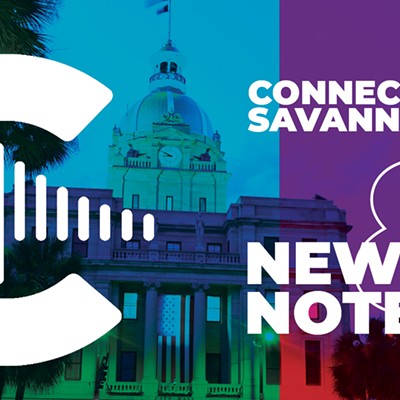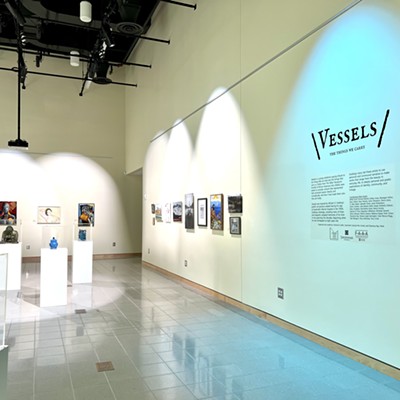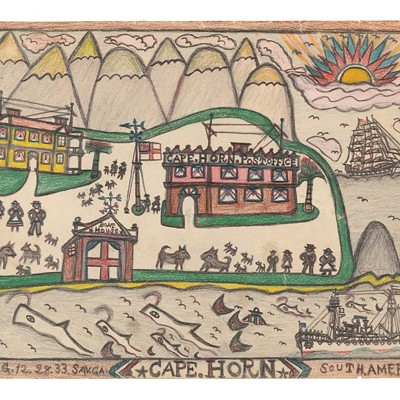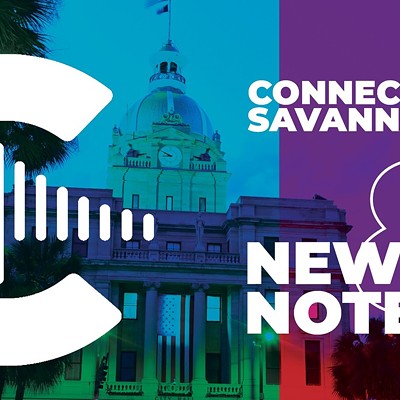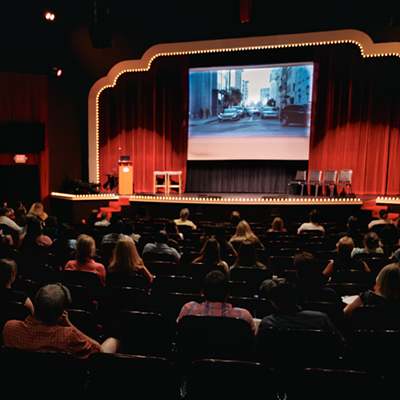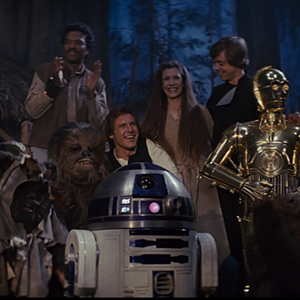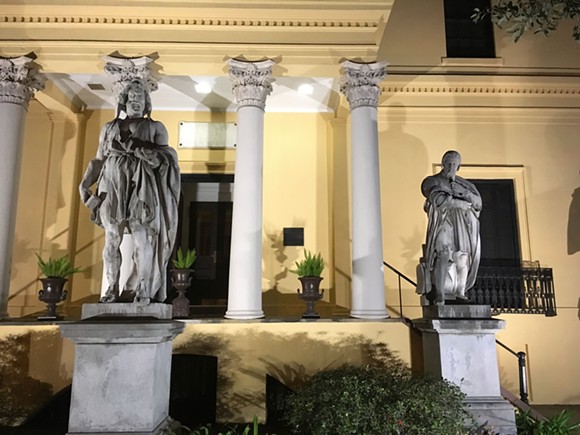
LOCAL arts and cultural organizations got an unpleasant holiday surprise late last week in the form of an unexpected, across-the-board proposal to slash City arts funding.
The $200,000 cut, part of the planned $378 million 2017 City of Savannah budget, represents an average 26 percent decrease in awards to cultural organizations for arts programming.
For example, the Telfair Museums — Savannah’s largest cultural organization, which oversees three properties and has an extensive staff—will see their award drop from 2016’s $103,000 to $76,000.
The Coastal Jazz Association, a much smaller, volunteer-run organization, will see its award go from last year’s $50,500 down to $29,700.
Making particular political waves is the announcement that the Savannah Black Heritage Festival will see its award go from last year’s $115,000 down to $85,900.
But it’s not just the amount of cuts that hurt—it’s the timing and the method.
“We were totally blindsided,” says Lisa Grove, executive director of the Telfair Museums, which uses the City funds mostly for free cultural outreach and diversity programming.
“Previously amounts had fluctuated a little year to year, but generally speaking we’ve been plus or minus at this level for at least the past decade. But a 26 percent funding cut out of the blue is a pretty significant cut on very short notice,” she says.
“It was a total surprise. It’s a really dramatic cut,” agrees Howard Paul, president of the Coastal Jazz Association, which uses the funds to put on the annual free Savannah Jazz Festival, in its 35th year.
The Cultural Affairs Commission is an all-citizen volunteer advisory board tasked in part with prioritizing the City’s grants to cultural organizations through the Cultural Affairs Department.
The Cultural Affairs Commission sets the award levels each year at a week-long annual summer session, usually in August.
This summer they decided on an arts budget for 2017 roughly equivalent to 2016 funding levels.
However, the Commission’s awards don’t have the force of law and aren’t binding. They were overruled at the suggestion of brand-new City Manager Rob Hernandez, himself faced with the daunting task of overhauling municipal departments still in a state of disarray from predecessors, and with a new mandate to overhaul and improve public safety.
Cultural Affairs Commission Chairman Raymond Gaddy says the Commission was as surprised as anyone by the cuts.
“The arts make all of us better and they should be encouraged. The arts are a big part of what gives a place its particular character and makes it unique,” says Gaddy.
“I’d go so far as to say that cutting arts funding ultimately weakens our community and shows a lack of forethought on the part of our leadership,” he says.
That’s a note echoed by many local cultural leaders when they got word of the cuts late last week.
Clinton Edminster of the grassroots group Art Rise Savannah says the cuts could signal a deeper issue of priorities.
“There’s a strange irony that in a time when our city desperately needs vision, imagination, and clarity, the organizations that provide these services, the arts and culture organizations, are being devalued both politically and financially,” Edminster says.
City of Savannah Deputy City Manager Bret Bell explains the rationale behind the painful, but he says necessary, cuts.
“In a nutshell, we are expecting flat revenues in 2017, as they were in 2016. Simultaneously, there is an increased demand for public safety funding, particularly in the Police Department,” Bell says.
In the proposed 2017 budget, 18 additional police officer positions were funded above what was authorized in 2016. The new hires—which average about $100,000 a year including salary, training costs, and health care costs—were funded through two state and federal grants, Bell says.
For the first time in recent history, he says, Savannah-Chatham Metro Police will be fully staffed.
However, Bell says “these budget balancing techniques are not sustainable” in future fiscal years because recurring revenues such as the grants don’t equal recurring expenditures.
“In 2017 we will go through a major restructuring process to fundamentally realign services with City Council priorities,” Bell says.
Confusing the issue somewhat is the fact that the 2017 budget does propose a five percent increase in funding (to $771,283) to the Cultural Affairs Department as a whole.
However, Bell says, that is mostly due to a 2.1 percent salary increase which all City personnel will be awarded, as well as an increase in health care costs.
Contrary to rumor, money is not being taken from cultural organizations to pay for the new Cultural Arts Center, which just broke ground. That project is funded separately, through a capital budget and mostly with Special Purpose Local Option Sales Tax (SPLOST) revenue.
In a very real sense, the newly realigned budget represents the fulfillment of a campaign promise by Mayor Eddie DeLoach and several new members of City Council to adequately fund public safety measures, especially fighting crime.
But local cultural organizations say while the amount of funding cuts will have potentially devastating effects on their efforts, the cuts are only a drop in the bucket in terms of the entire City budget.
Indeed, the sum total of the cultural funding cuts—$200,000—represents only a tiny fraction of one percent of the budget.
Even when you consider the actual discretionary portion of the City’s budget is closer to half the full $378 million amount, it seems to many that the undersized savings are hardly worth the outsized impact on the local arts community.
“We know the City is fiscally constrained, and we understand that putting together a budget is about making choices and setting priorities,” Grove says.
“But this cut doesn’t enable the City to balance the budget by any means. It sure will make a huge difference to a lot of organizations, though.”
Most arts organizations, unaware of the pending cuts and figuring the worst of the recession-level austerity was over, had already budgeted based on past funding levels.
“We had already approved our budget for 2017,” says Grove. “We have contracts already in place with service providers starting in January.”
That said, larger organizations like the Telfair and the Savannah Music Festival would be able to survive. Smaller ones, however, would feel the cuts more keenly.
There is a real possibility that a few may not be able to continue in anything like their current form.
“What troubles me the most about this is the disproportionate impact this will have on the smaller arts organizations,” says Art Rise’s Edminster.
“The impact will be felt by all organizations, no doubt, but the financial strain on the smaller organizations, the ones that provide the granular and intimate experiences, is troubling,” Edminster says.
Cultural Affairs Chairman Gaddy further explains how arts and cultural programming from organizations both large and small has measurable positive impacts on Savannah’s sociocultural health.
“When a student works with one of our City-funded organizations, they become better students, learners, citizens and frankly more employable,” he says.
Citing the nationally-awarded Deep writing program, Gaddy says, “Students that work with the Deep program not only learn how to write better, but also how to express themselves, ultimately gaining the self-confidence to stand in front of an audience and tell their story.”
Gaddy says the same could be said for the children who go through the YMCA Creative Arts Program, or the many youth programs administered by the Savannah Philharmonic Orchestra and the Savannah Music Festival, for example.
“We all benefit when we take ourselves out of our comfort zone and experience even a little of another culture, whether through the Savannah Black Heritage Festival, Asian Festival or something like the MountainFilm Festival,” says Gaddy.
Local cultural organizations remain hopeful that when the public gets the full measure of the potential impact on the arts, elected and appointed officials will reconsider and vote accordingly.
The public will have two chances to weigh in, at City Council meetings on Dec. 8 and Dec. 22 at City Hall.
“If you take away the arts you take away part of the core of what makes Savannah the place she is,” concludes Gaddy.
“Culture and the arts are extremely important components of the quality of life in this city,” agrees Howard Paul.
“Unfortunately, the arts are often the first things that get cut. Look no further than the schools to see what happens when government cuts are used to suppress music and music education,” he says.
Pointing out that budgets, once cut, often never return to previous funding levels, Lisa Grove concludes:
“The suddenness and the timing of this sends an ominous message. Hopefully it’s not a sign of Christmases to come.”

